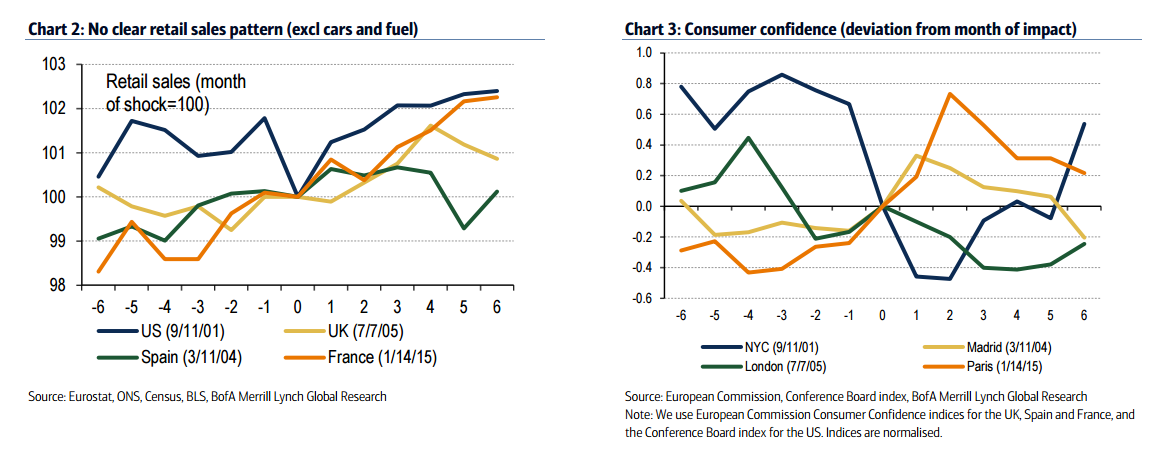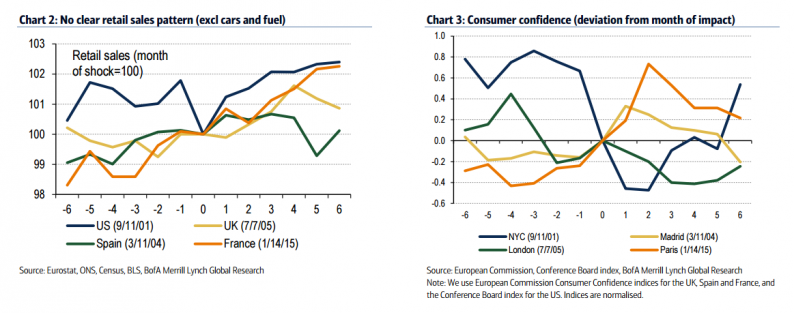Writing about the French terrorist attacks and the economic risks to the European economy is “always something almost unsavory” and could involve “spurious speculations in unchartered areas of expertise,” particularly when one of those involved in writing the report is a French national. But the report must be written, a Bank of America Merrill Lynch report volunteered, as “the terror attacks in Paris, together with the intensification of the foreign military operations in Syria introduce a new element of risk in Europe’s macroeconomic situation that cannot be ignored.”

Most significant cost of Paris terrorist attack could be higher defense spending, ending the “spoils of peace”
While the economic impact of the terrorist attacks in Paris are likely to have an economic cost, a notion voiced by European Central Bank Chief Economist Peter Praet on Monday of last week, deciphering the exact implications might be more difficult, if nuanced. This is because, after reviewing historical statistics, “no general pattern can be found in the unfortunately rather long list of precedents.”
Instead of considering the risk as a main scenario, the bank’s European Economics team of Gilles Moec and Evelyn Herrmann incorporate it into their baseline and note the “peace dividend” may be off the table.
“The immediate cost of higher homeland security spending and intensified military operations in Syria is fairly easily manageable,” they wrote, speculating the crisis signals “the end of the ‘spoils of peace.’”
After a major drop in defense spending across Europe, which has “helped a lot in improving the fiscal situation in the run-up to monetary union in the late 1990s,” the economic benefits of peace may be over and a new issue may rise – one that asks all EU nations to share the defense burden of the region.The report says that low defense spending “may have reached a floor, with a lot of countries now well below NATO’s target of 2 percent of GDP.” The Paris attacks “will trigger questions on burden-sharing, with Paris, for instance, remarking that if Germany had spent as much as France on defense since the end of the cold war, the two countries would today present the same public debt-to-GDP level.”









Leave A Comment